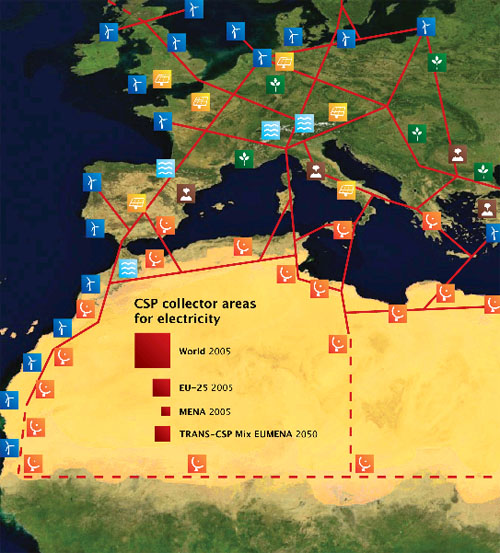 The NZ Herald business supplement recently carried a thoughtful feature by Peter Huck in which he described moves to combat climate change at lower levels than the floundering international negotiations. He begins with a report on Desertec Industrial Initiative, the German-led consortium which this year hopes to trial in Morocco a concentrated solar power plant as the harbinger of ambitious plans to provide very large quantities of solar and wind energy to North Africa and Europe.
The NZ Herald business supplement recently carried a thoughtful feature by Peter Huck in which he described moves to combat climate change at lower levels than the floundering international negotiations. He begins with a report on Desertec Industrial Initiative, the German-led consortium which this year hopes to trial in Morocco a concentrated solar power plant as the harbinger of ambitious plans to provide very large quantities of solar and wind energy to North Africa and Europe.
Huck takes this as one of the many signals that the top-down approach to limiting carbon emissions through international deals is giving way to a ground-up attitude that stresses action. Others include the EU’s introduction of a carbon tax on airlines that use its airports; Scotland’s investment in wave power; California’s embrace of renewable energy, clean fuels, a cap-and-trade programme to limit emissions, and other green policies; Ecuador’s efforts to preserve its forests by getting donors to pay it to keep oil in the ground; China’s approval last year of its 12th Five Year Plan, which aims to tackle energy consumption and CO2 emissions. Further down the chain Huck instances a growing urgency about reducing emissions which can mean corporate investment in renewable energy, municipal emphasis on public transport, or a family insulating their home.

 John Prescott, whose activities in the lead-up to Copenhagen I drew attention to in an earlier
John Prescott, whose activities in the lead-up to Copenhagen I drew attention to in an earlier